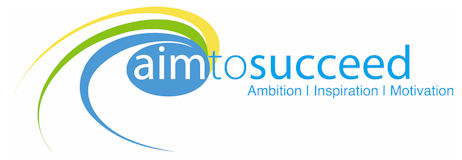Understanding yourself and how you respond best can be a great advantage to you in both personal and business situations. It can help you be more productive in many different ways.
There are a multitude of personality test out their Myers Briggs, Insight and various NLP communication model tests. These all have their place for detailed analysis and team dynamics, but at the most basic level you don’t need them. All these tests look in depth at the way you respond your communication style and prioritise the methods that you are comfortable with.
But you already know this, maybe only unconsciously but you know it, you are the one answering the questions you are the one having the responses. Therefore, at the most basic level, if you simply look at:
- the things that you do naturally,
- that you enjoy doing,
- that you are comfortable with,
you will instantly have a better understanding of what makes you work efficiently.
To give you an example.
I have always felt that I was bad writing. I struggled with GCSEs and A-levels. I was doing science courses, which required me write essays and reports. I knew I had the knowledge but I couldn’t get it down on paper. This came to fruition when I failed my A-levels and seriously needed to do something about.
So I went to one of my lecturers:
I knew I knew it, he know I knew it and we needed to work out how to make sure that the examiners knew I knew it.
I had all the fears and anxieties of failing and not knowing how to communicate effectively. My lecturer took these away by simply talking to me by getting me to talk through the answers rather than writing them down. Being able to verbally express my thoughts helped me create the structure and then fill in the detail of what I want to talk about, i.e. the essay question.
By applying this technique of having the conversation rather than writing an essay I was able to go back to my A-level biology exam and get a B grade. Since that day I will known that my best style for communicating these verbal. I’m far more comfortable discussing a topic than writing about. Even to this day I prefer picking up the phone to writing an email.
At this point, I’ll mention that my handwriting has always been very poor. Therefore, I didn’t enjoy writing. So my first solution was to type. By having my laptop available to me. I would make notes by typing them up. This enabled me to get details down. I learnt to touch type, although I’m no personal assistant or secretary, I could get by.
But it was still not comfortable. It was still not easy for me to produce documents. My internal dialogue is always far faster than I could type and I would lose my thread as my fingers were catching up with my brain.
Those of you that follow the AIM to Succeed page on Facebook would have seen my comment about Dragon NaturallySpeaking and how enjoying using it. In the last few days. This has freed my creativity, being able to talk naturally and think on my feet (I’m literally wandering around as I write this) has given me new impetus and a new mode of expressing the things I want to say.
I have given you this is at this as an example, so that you can look at yourself and those around you to see if you can spot something that you consistently struggle with. Once you’ve identified this look at how you would like to do it, changing the style in which you work could dramatically increase your productivity, effectiveness and happiness.
Many of you will look inward and you will find your own answers, whereas others will see nothing but problems.
If you would like to find out more about how we could work together please look at the ‘Ideal Clients‘ and ‘How I work as a Business Coach‘ sections
